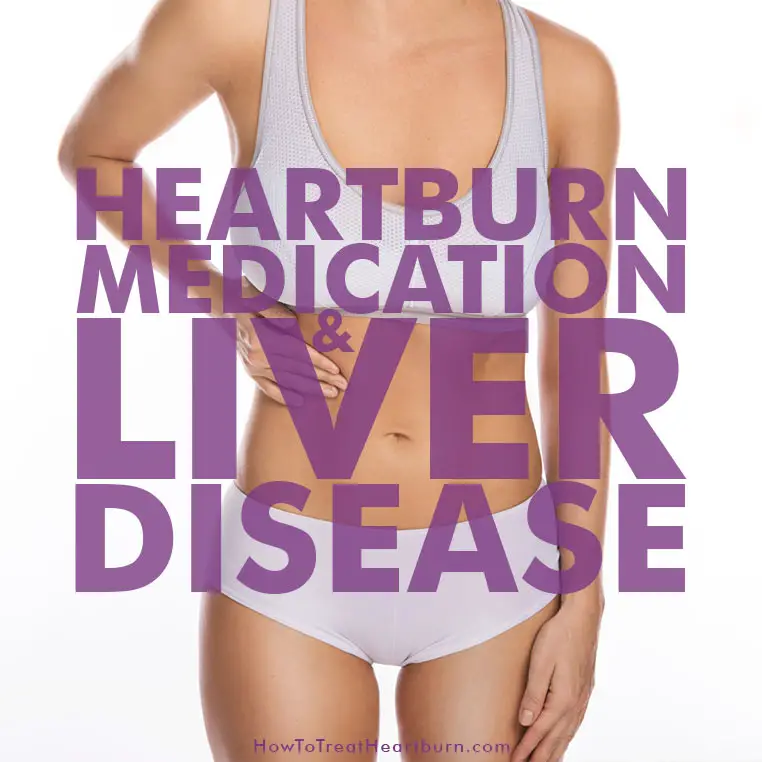Disclosure: I am compensated for purchases made through some links on this site. Click for details.
Researchers at UC San Diego Medical Center have linked proton pump inhibitors (PPIs) to liver disease. With tens of millions of people taking PPIs, the ramifications are daunting.
PPIs are one of the most popular classes of heartburn medicine on the market. Millions of these heartburn pills are taken daily in both over-the-counter and prescription forms. You might recognize them by their brand names or their generic names:
- AcipHex (rabeprazole)
- Dexilant (dexlansoprazole)
- Kapidex (dexlansoprazole)
- Losec (omeprazole)
- Nexium (esomeprazole)
- Prevacid (lansoprazole)
- Prilosec (omeprazole)
- Protonix (pantoprazole)
- Rapinex (omeprazole)
- Vimovo (esomeprazole, magnesium, and naproxen)
- Zegerid (omeprazole and sodium bicarbonate)
PPI Side Effects
Short-term use of PPIs can be valuable in the treatment of gastroesophageal reflux disease (GERD) and other digestive issues, however, numerous studies have linked the long-term use of PPIs to an alarming list of side effects that include but are not limited to stroke, heart attack, kidney disease, dementia, bone fractures, pancreatic cancer, liver disease, and premature death.1,2
PPIs and Liver Disease
Through a series of studies with mice and humans, senior author Bernd Schnabl, MD and his research team at the University of California San Diego School of Medicine have found that the absence of gastric acid through the use of PPIs allows for the growth of Enterococcus bacteria in the intestines. From the intestines, Enterococcus bacteria can then move to the liver where they promote liver injury, steatosis, inflammation, and fibrosis by increasing the progression of alcohol-related liver disease (ARLD), non-alcoholic fatty liver disease (NAFLD), alcoholic steatohepatitis, and nonalcoholic steatohepatitis (NASH).3
Those who have an existing liver disease caused by obesity, alcoholism, or other condition are at greatest risk of liver damage when using heartburn medications. Though PPIs were the focus of the study all medications that suppress or neutralize stomach acid can cause changes in intestinal bacteria and potentially cause liver damage by allowing the growth of Enterococcus bacteria.
Finding From Studies on PPIs and Liver Disease
PPI Use and Liver Disease Studies in Mice
Schnabl and his research team studied mice that were developed to mimic alcoholic liver disease in humans. Gastric acid production in the mice was blocked either by genetic engineering or with a PPI (omeprazole).
They found that mice with gastric acid suppression developed more Enterococcus faecalis bacteria. This change in gut microbiomes increased the progression of liver disease in the mice.
In order to confirm these findings, the researchers mimicked a longer-lasting overgrowth of intestinal Enterococci following gastric acid suppression by inducing Enterococcus faecalis bacteria. The finding showed that Enterococcus promotes the progression of chronic liver disease in mice.
PPI Use and Liver Disease Study of Humans
After studies in mice, the researchers confirmed the effect of PPIs on liver disease in a cohort study of humans by analyzing Enterococcus faecalis bacteria levels in stool samples from people who abuse alcohol. This study included 4,830 patients:
- 1,024 active PPI users
- 745 who previously used PPIs
- 3061 who had never used PPIs
Their findings showed a link between PPI use and an increase of Enterococcus faecalis bacteria in the stool of patients who abuse alcohol. The study also revealed the 10-year risk of these patients being diagnosed with alcoholic liver disease to be:
- 20.7% for those currently taking PPIs
- 16.1% for those who previously used PPIs
- 12.4% for those who had never used PPIs
These findings show the risk of an alcoholic developing liver disease to be 8.3 percent higher for people using PPIs than those who never used PPIs.
Should You Be Taking PPIs or Get Off PPIs?
With chronic liver disease is on the rise, liver cirrhosis is now the 12th leading cause of death worldwide. This increase in liver disease is partly due to the rise in obesity, which are tied to non-alcoholic fatty liver disease (NAFLD) and nonalcoholic steatohepatitis (NASH).4 Alcohol consumption accounts for 47.9% of deaths due to liver cirrhosis.5
PPIs are one of the most commonly prescribed medications in the world and are the primary drugs used for treating GERD, which occurs in 42% of Westerners on a monthly basis.6 This means tens of millions of people take PPIs on a daily basis. A higher percentage of people with chronic liver disease experience GERD and take PPIs than that of the general population.7
Speak with your doctor before using PPIs. Too many people elect to take PPIs on their own without doctor supervision. If you take PPIs without doctor supervision, speak with your doctor especially if you drink a lot of alcohol or are overweight. You could be placing yourself at added risk of liver damage.
Poor diet and lifestyle choices predispose a person to acid reflux. Through changes in diet and lifestyle, many people are able to get off PPIs and control GERD symptoms. Long-term or large dosage use of PPIs for heartburn prevention is always a poor choice for anyone without severe GERD symptoms. PPIs can be a valuable short-term treatment for digestive issues. Long-term use, however, can lead to a great number of health issues.

References
1) Shah NH, LePendu P, Bauer-Mehren A, Ghebremariam YT, Iyer SV, Marcus J, Nead KT, Cooke JP, & Leeper NJ. “Proton Pump Inhibitor Usage and the Risk of Myocardial Infarction in the General Population.” National Center for Biotechnology Information, U.S. National Library of Medicine, PLOS One, June 10, 2015.
2) “FDA Drug Safety Communication: Possible increased risk of fractures of the hip, wrist, and spine with the use of proton pump inhibitors.” U. S. Food and Drug Administration, May 25, 2010.
3) Tianna Hicklin, Ph.D. “Blocking stomach acid may promote chronic liver disease.” National Institutes of Health, October 24, 2017.
4) Robert J. Wong, Maria Aguilar, Ramsey Cheung, Ryan B. Perumpail, Stephen A. Harrison, Zobair M. Younossi, & Aijaz Ahmed “Nonalcoholic Steatohepatitis Is the Second Leading Etiology of Liver Disease Among Adults Awaiting Liver Transplantation in the United States.” Gastroenterology, March 2015, Volume 148, Issue 3, Pages 547–555.
5) Rehm J, Samokhvalov AV, & Shield KD. Global burden of alcoholic liver diseases.” National Center for Biotechnology Information, U.S. National Library of Medicine, Journal of Hepatology, July, 2013.
6) Hvid-Jensen F, Nielsen RB, Pedersen L, Funch-Jensen P, Drewes AM, Larsen FB, & Thomsen RW. “Lifestyle factors among proton pump inhibitor users and nonusers: a cross-sectional study in a population-based setting.” National Center for Biotechnology Information, U.S. National Library of Medicine, Clinical Epidemiology, December 4, 2013.
7) Catanzaro R, Calabrese F, Occhipinti S, Anzalone MG, Italia A, Milazzo M, & Marotta F. “Nonalcoholic fatty liver disease increases risk for gastroesophageal reflux symptoms.” National Center for Biotechnology Information, U.S. National Library of Medicine, Digestive Diseases and Sciences, August, 2014.




I am a 70 year old woman and have bad acid reflux and sleep apnea…I need to take off a few pounds of weight around my middle…and starting the 5,2 diet..been on Omeprazole for 2 months..have weaned off it..and taking a bit of Baking Soda at night before bed…and sleep on a wedge…which helps. Hopefully reducing my weight will help both acid reflux and sleep apnea.